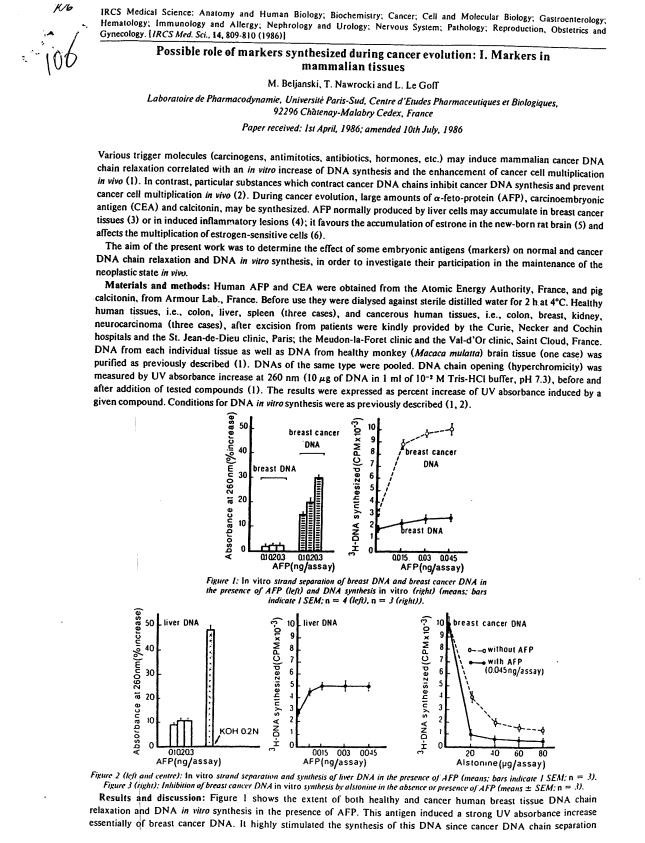106 – Possible role of markers synthesized during cancer evolution: I- Markers in mammalian tissues
1986
Authors : M. BELJANSKI, T. NAWROCKI, L. LE GOFF
IRCS Med. Sci. 14, 1986, pp. 809-810.
Available in English only
ABSTRACT: Various trigger molecules (carcinogens, antimitotics, antibiotics, hormones, etc…) may induce mammalian cancer DNA chain relaxation correlated with an in vitro increase of DNA synthesis and the enhancement of cancer cell multiplication in vivo. In contrast, particular substances which contract cancer DNA chains inhibit cancer DNA synthesis and prevent cancer cell multiplication in vivo. During cancer evolution, large amounts of α-feto-protein (AFP), carcinoembryonic antigen (CEA) and calcitonin, may be synthesized. AFP normally produced by liver cells may accumulate in breast cancer tissues or in induced inflammatory lesions; it favours the accumulation of estrone in the new-born rat brain and affects the multiplication of estrogen-sensitive cells. The aim of the present work was to determine the effect of some embryonic antigens (markers) on normal and cancer DNA chain relaxation and DNA in vitro synthesis, in order to investigate their participation in the maintenance of the neoplastic state in vivo.Voir le document




